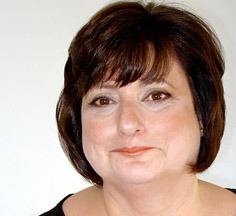Business Council for Peace
Purpose Prize Fellow 2012
Maloney fosters entrepreneurship — especially among women — in conflict zones, to create jobs and move communities toward prosperity and peace.
When Toni Maloney first visited the Kabul Women’s Garden, a shopping center in
Afghanistan’s capital city where only women can work or shop, it had no electricity. Kerosene stoves provided the heat for the 5-by-10-foot retail spaces.
The marketing executive watched as the businesswomen pulled product prices out of thin air, having no idea whether they were turning a profit.
Now they’re more business savvy, thanks to Business Council for Peace (Bpeace), the organization Maloney co-founded in 2002. Bpeace fosters entrepreneurship – especially among women – in conflict zones, to create jobs and move communities toward prosperity and peace.
The organization works with the help of more than 300 volunteer business professionals – from fields ranging from real estate to tourism. They have coached genocide survivors in Rwanda to increase profits at an ice cream shop; mentored Afghan widows to sell hand-stitched soccer balls internationally; and helped Salvadorans operate restaurants with better customer service and profitability.
Bpeace manages between 60 and 80 entrepreneurs in its portfolio at any one time, providing them with pro bono business advice and guidance for two years. Seventy-two percent of the businesses are owned or led by women.
Among the Salvadoran, Afghan and Rwandan businesses that have participated in the Bpeace program for more than one year, the average job growth is 39 percent.
Bpeace grew from Maloney’s post-9/11 realization that she wanted a life of more profound meaning. “I feel like I don’t have a choice but that I have to do this, that I owe this to the universe,” she says.




